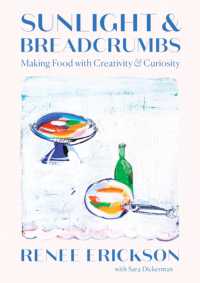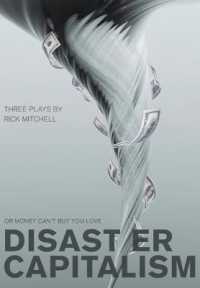- ホーム
- > 洋書
- > 英文書
- > Philosophy
Full Description
How fixed are the happenings in Nature and how are they fixed? These lectures address what our scientific successes at predicting and manipulating the world around us suggest in answer.
One—very orthodox—account teaches that the sciences offer general truths that we combine with local facts to derive our expectations about what will happen, either naturally or when we build a device to design, be it a laser, a washing machine, an anti-malarial bed net, or an auction for the airwaves.
In these three 2017 Carus Lectures Nancy Cartwright offers a different picture, one in which neither we, nor Nature, have such nice rules to go by. Getting real predictions about real happenings is an engineering enterprise that makes clever use of a great variety of different kinds of knowledge, with few real derivations in sight anywhere. It takes artful modeling. Orthodoxy would have it that how we do it is not reflective of how Nature does it. It is, rather, a consequence of human epistemic limitations. That, Cartwright argues, is to put our reasoning just back to front. We should read our image of what Nature is like from the way our sciences work when they work best in getting us around in it, non plump for a pre-set image of how Nature must work to derive what an ideal science, freed of human failings, would be like. Putting the order of inference right way around implies that like us, Nature too is an artful modeler.
Lecture 1 is an exercise in description. It is a study of the practices of science when the sciences intersect with the world and, then, of what that world is most likely like given the successes of these practices. Millikan's famous oil drop experiment, and the range of knowledge pieced together to make it work, are used to illustrate that events in the world do not occur in patterns that can be properly described in so-called "laws of nature." Nevertheless, they yield to artful modeling. Without a huge leap of faith, that, it seems, is the most we can assume about the happenings in Nature. Lecture 2 is an exercise in metaphysics. How could the arrangements of happenings come to be that way? In answer, Cartwright urges an ontology in which powers act together in different ways depending on the arrangements they find themselves in to produce what happens. It is a metaphysics in which possibilia are real because powers and arrangement are permissive—they constrain but often do not dictate outcomes (as we see in contemporary quantum theory). Lecture 3, based on Cartwright's work on evidence-based policy and randomized controlled trials, is an exercise in the philosophy of social technology: How we can put our knowledge of powers and our skills at artful modeling to work to build more decent societies and how we can use our knowledge and skills to evaluate when our attempts are working.
The lectures are important because:
They offer an original view on the age-old question of scientific realism in which our knowledge is genuine, yet our scientific principles are neither true nor false but are, rather, templates for building good models.
Powers are center-stage in metaphysics right now. Back-reading them from the successes of scientific practice, as Lecture 2 does, provides a new perspective on what they are and how they function.
There is a loud call nowadays to make philosophy relevant to "real life." That's just what happens in Lecture 3, where Cartwright applies the lesson of Lectures 1 and 2 to argue for a serious rethink of the way that we are urged—and in some places mandated—to use evidence to predict the outcomes of our social policies.








